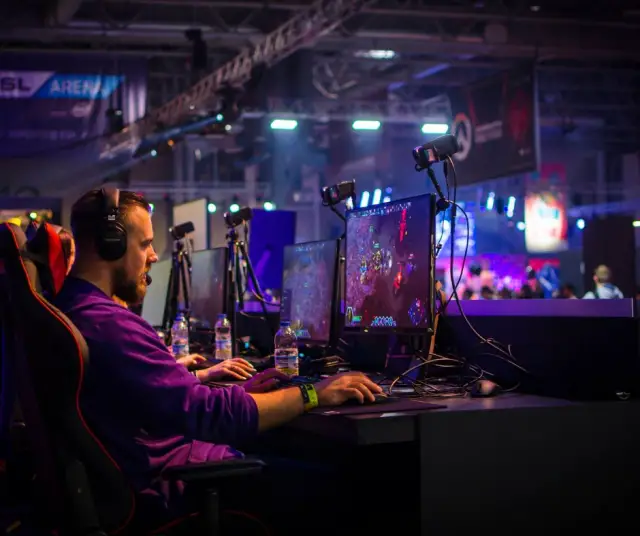Over the past two decades, eSports has experienced exponential growth, going from a niche subculture to a multi-billion dollar industry that attracts millions of viewers and participants around the world. What was once considered a second-class form of entertainment now competes with traditional sports in terms of popularity and legitimacy.
What are eSports?
eSports, short for electronic sports, are organized video game competitions that involve individual players or teams competing against each other in various video game titles. Unlike traditional sports that involve direct physical activity, eSports take place in the virtual world of video games, where skill, strategy and coordination are essential to achieve victory.
The rise of eSports has been attributed to the advent of high-speed Internet and the development of live streaming platforms such as Twitch and YouTube Gaming. These platforms allow players to broadcast their games in real time, which has contributed to the creation of a global community around video games.
The most popular games on the eSports scene span a wide variety of genres, from real-time strategy (RTS) games like Dota 2 and StarCraft II, to first-person shooters (FPS) like Counter-Strike: Global Offensive and Overwatch, through fighting games like Street Fighter and Super Smash Bros., and electronic sports games like FIFA and NBA 2K.
eSports have evolved from being informal competitions at the local and regional level to becoming large-scale international events with million-dollar prizes and millions of online and in-person viewers. eSports competitions take place in large stadiums and arenas, where players compete in front of enthusiastic crowds and are broadcast live over the Internet to a global audience.
eSports has its roots in local and regional video game tournaments dating back to the 1970s and 1980s, but its explosion in popularity came in the early 21st century with the advent of high-speed Internet and live streaming. Platforms like Twitch and YouTube Gaming allowed players to stream their gameplay in real time, attracting a massive audience and creating a global community around video games.
Cultural Impact
The rise of eSports has had a profound impact on contemporary culture. It has democratized the idea of what constitutes a sport, expanding the scope of the term to include activities that do not involve direct physical activity. eSports have spawned idols and celebrities, with professional players having millions of followers on social media and earning salaries comparable to traditional athletes.
The eSports industry has seen explosive growth in terms of revenue and viewership. Total eSports revenue is estimated to reach $1.1 billion in 2023, with a global audience of more than 500 million people. These figures have attracted the attention of large corporations, brands and sponsors looking to capitalize on the potential of this rapidly growing industry.
To maintain its growth, eSports has developed a professional infrastructure that includes leagues, teams, tournaments, coaches, analysts and commentators. eSports organizations invest large sums of money in building elite teams and creating state-of-the-art training facilities. Additionally, governments and educational institutions are beginning to recognize eSports as a legitimate discipline and are offering scholarships and training programs for young talents.
Despite its growth and success, eSports faces several challenges and controversies. The sedentary nature of video games has led to concerns about the physical and mental health of players, including problems such as carpal tunnel syndrome and video game addiction. Additionally, the competitive nature of eSports has led to cases of cheating and doping, raising questions about the integrity of the competition.
The Future of eSports
The future of eSports is shaping up to be a horizon full of exciting possibilities and challenges. As this industry continues its meteoric rise, several trends and developments are on the horizon that could reshape the way we experience and understand esports.
One of the main areas of innovation in the future of eSports is technology. Virtual reality (VR) and augmented reality (AR) promise to take the gaming experience to a whole new level. Imagine being able to immerse yourself in a virtual world where you participate in an eSports tournament as if you were really inside the game. These technologies have the potential to transform the way we interact with eSports, providing a more immersive and exciting experience for both players and spectators. In addition to technology, the future of eSports will also be marked by greater geographic and demographic expansion. As Internet accessibility continues to improve around the world, eSports is expected to attract an even more diverse and global audience. This could lead to an increase in player and team diversity, as well as greater representation of different cultures and regions in the eSports scene.
